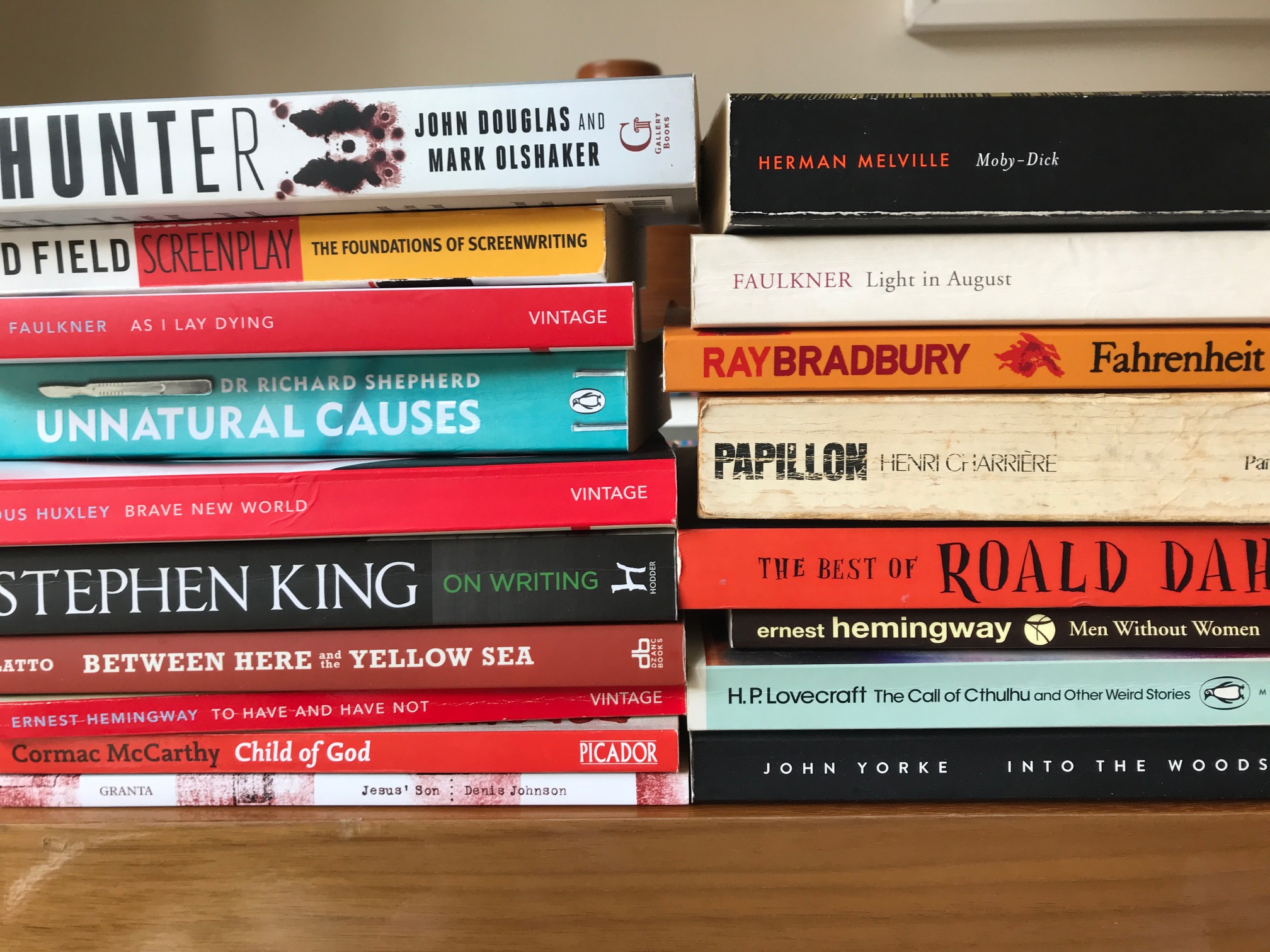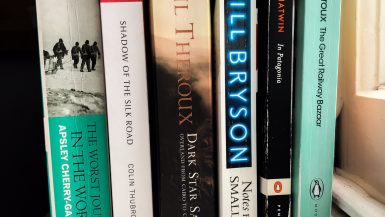What to read this Summer: July Book Review
7 Minute Read
Welcome back to my monthly book review – and hello to those of you who are new to Walk Wild! I’ve got a curious mix of books to review this month with some of these reviews proving to be more challenging than others! For one reason or another, during the last week of July I’ve ended up with four books on the go. So although I probably could have read a book during that final week I’m reading snippets of multiple books. Strange, but I’ll get more into that in August.
For now, here’s my July book review:
- Life Lessons from Nietzsche – John Armstrong ★★★
- Jesus’ Son – Denis Johnson ★★★
- Under the Banner of Heaven – Jon Krakauer ★★
- Cities of the Plain – Cormac McCarthy ★★★★
P.S. I’ve now created an Instagram account just for my book reviews and fiction writing. This allows me to focus on the short story collection I’m writing and to share the journey with the reading and writing community on top of doing my regular travel blogs. Check it out here.
This page contains affiliate links. This means I make a commission if you buy a product I have recommended (at no extra cost to you). All recommendations I give are genuine and my own. Thanks for the support!
1. Life Lessons from Nietzsche – John Armstrong
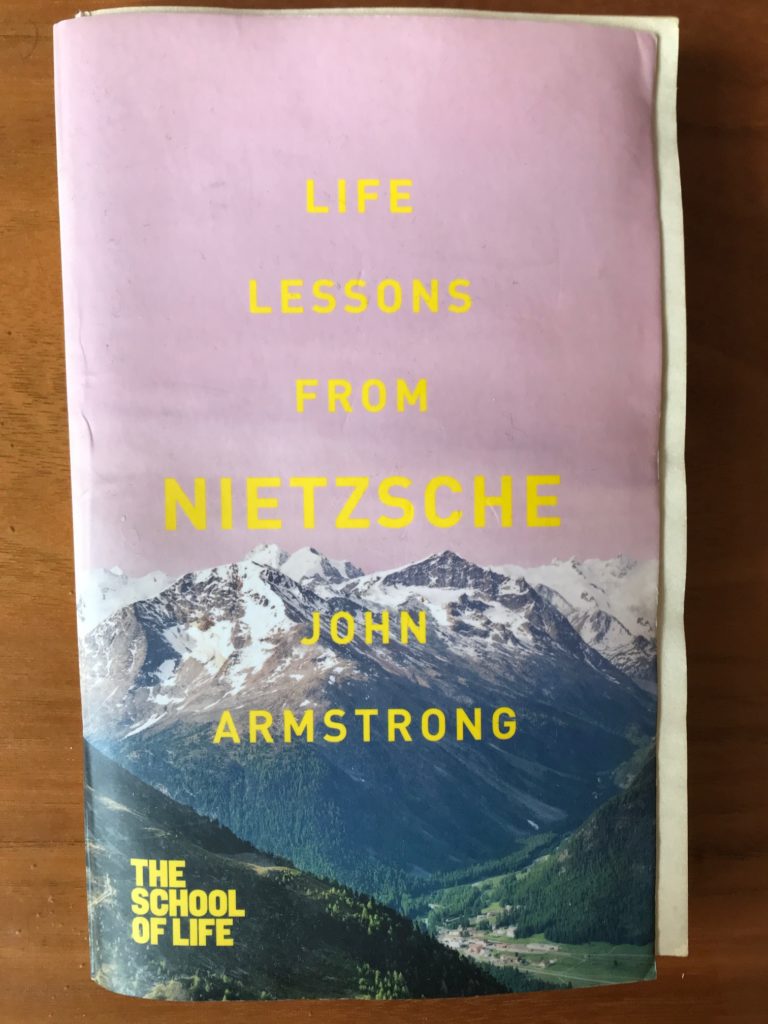

Generally, when I’m reading books, I have notes open on my iPhone to write down any comments or thoughts as I’m going along. This means when I come to writing the review at the end of the month, I have some notes to go off to jolt my memory. Unfortunately, in this case, all I wrote down for this book were the following 3 notes:
-god is dead
-hourglass of existence
-introduction to philosophy
Not exactly a lot to go off, right?
For me, this was my first introduction into philosophy. Of course I’ve indirectly been introduced to many philosophical concepts in books I’ve read, but this was the first time I’ve had a go at reading academic essays – where better to start than Nietzsche? Talk about jumping in at the deep end.
I’m not going to lie and pretend I understood everything because I didn’t. Philosophy has always seemed too flimsy and ungrounded for my liking and I never gave it the time of day it deserved. Only as I’ve grown up and read more have I seen it’s true value. This means that I still find it a challenging topic to approach. A good thing about this book is that before each chapter, the narrator gives a helpful foreward, summing up some of the concepts to be discussed. I understood these parts fine, but when it came to extracts of Nietzsche’s essays I became quite confused and found my mind drifting.
But that’s exactly why this is a good book to start with if you want to get a soft introduction to this complex subject. Unfortunately, it’s often hard to follow with narration spliced in between segments of Nietzsche’s essays. For this reason I think it would be better to go straight for the essay’s of Nietzsche and to read analysis of it after – if you wish to truly understand his work. Having said that, if a watered down introduction is what you’re looking for, then this is your way in.
2. Jesus’ Son – Denis Johnson
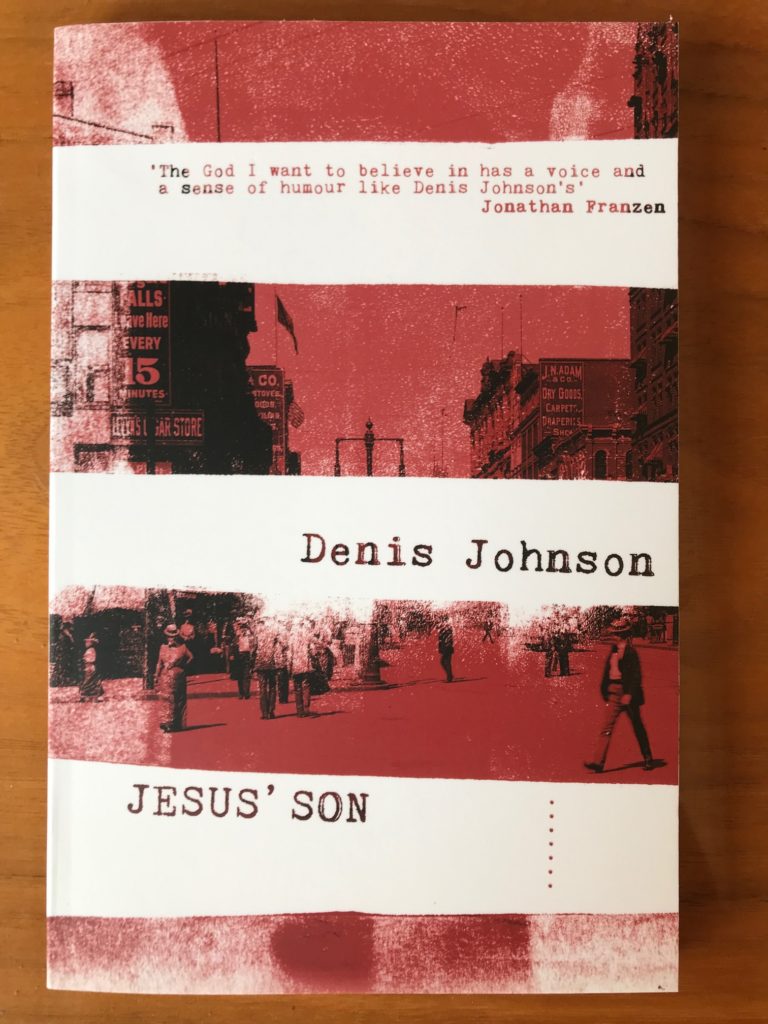

The problem with me trying to read a book a week is that sometimes things go over my head and it’s hard to piece together what’s exactly gone on. This issue happened when I read As I Lay Dying, and it happened again during Jesus’ Son. For some reason, I’m concentrating on each sentence and paragraph but occasionally still manage to miss the big picture.
I was fascinated in the content of the stories and was hooked from the get go. But despite this, I finished the collection a little confused and completely missing the point that each of the stories were connected in multiple ways including through the same narrator. Just went straight over my head.
I could still see that the subject matter was dark and troubling. It’s the underbelly of America. Drug addiction, debauchery, and a heavy dose of existentialism that will equal parts fascinate and appal you. The jumpy narrative style is apt considering it’s told from the perspective of a heavily intoxicated and downright psychotic drug user known as “Fuckhead”.
Clearly this is not a short story collection for everyone. It’s extreme, it’s hard boiled, and it examines the dark side of life many people are forced to live. It’s also delivered in an honest and even insightful tone that makes you wonder whether you should pity the characters, resent them, or both.
I’m intrigued enough to want to read more of Denis Johnson to see how he handles a longer piece of work but using the same style. I’d like to see what else he has to offer and with Jesus’ Son it was a twisted but promising start.
3. Under the Banner of Heaven – Jon Krakauer
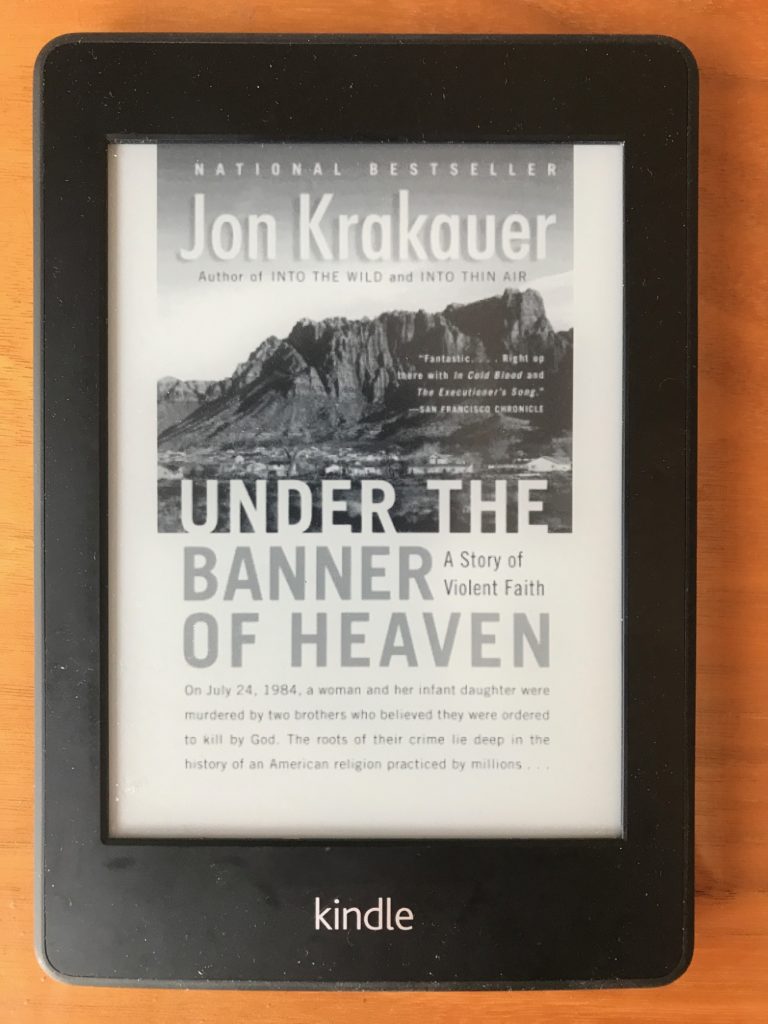

The Mormon church: fundamentalism, religious extremists, zealots, incest, rape, pedophilia, and killing in the name of God.
Those are just some of the topics Krakauer covers in his true crime story studying the reasoning and motives behind a group of Mormons who committed murder citing their instruction as being from the word of God.
Although the subject matter sounds very interesting, the result was rather deflating, and I think that’s for two reasons. First is due to the style Krakauer chose to write his book in, and the second is due to the fundamental nature of the Mormon religion itself.
Firstly about Krakauer; I’ve always been a big fan of him, having throughly enjoyed reading Into the Wild and Into Thin Air, but there was something about this book that just didn’t work for me. Krakauer often includes a serious amount of detail in terms of names, dates, and locations, which was highly effective in both the previous books I mentioned as it helps to build the world around the story and allows the reader to gain a good perspective about everything that’s gone on. Unfortunately, in this case, I think he went way too far with it.
It could be that following the success of his previous 2 books, he wanted to really push himself and spend time developing an extraordinary story. But that wasn’t the sense I got. For me, it lingered into vanity project territory. Clearly he was trying to pull off what Capote did with In Cold Blood, where you don’t analyse a murder in isolation, you consider its impact and even its cause from the perspective of a community. I think where Capote excelled is that he is a better story teller; he could paint a picture that depicted the true impact of a terrible crime without having to rely on excessive labelling to drive the point home about its far reaching effects.
Krakauer clearly has an amazing vocabulary, but at times this tips towards overly verbose. He also did a huge amount of research on the topic, and that definitely comes through, although it doesn’t mean we need to hear all of it. The narrative becomes convoluted and bogged down in an excessive retelling of the Mormon religious history. The book ends up reading like a news article and there are too many character names and quotes, and an excessive use of nouns and pronouns.
Secondly, I could not help rolling my eyes again and again at the ridiculousness of the Mormon religion. How it’s run, by this group of sickly sadistic men, is downright evil. The bible is contradictory enough when taken metaphorically let alone literally. And in this case the whims and wishes of a few power hungry individuals means they simply turn any of their desires into religious law by claiming it was decreed from God – and no one is allowed to disagree with them. This includes polygamy, incest, sexual assault, rape, tax avoidance, and eventually murder.
There came a point where although I found it interesting, I was troubled enough to not want to know more. I felt that by reading about it, I was somehow indulging it further and I didn’t want to be a part of any more hype around the leaders and their fame – or infamy, depending on who you ask. The injustice of that alone, and the levels of indoctrination occurring made me weary.
I think it’s clear I had a few issues with this book and I can safely say, save your time and read Into the Wild or Into Thin Air if you really want to catch a glimpse of vintage Krakauer.
4. Cities of the Plain – Cormac McCarthy
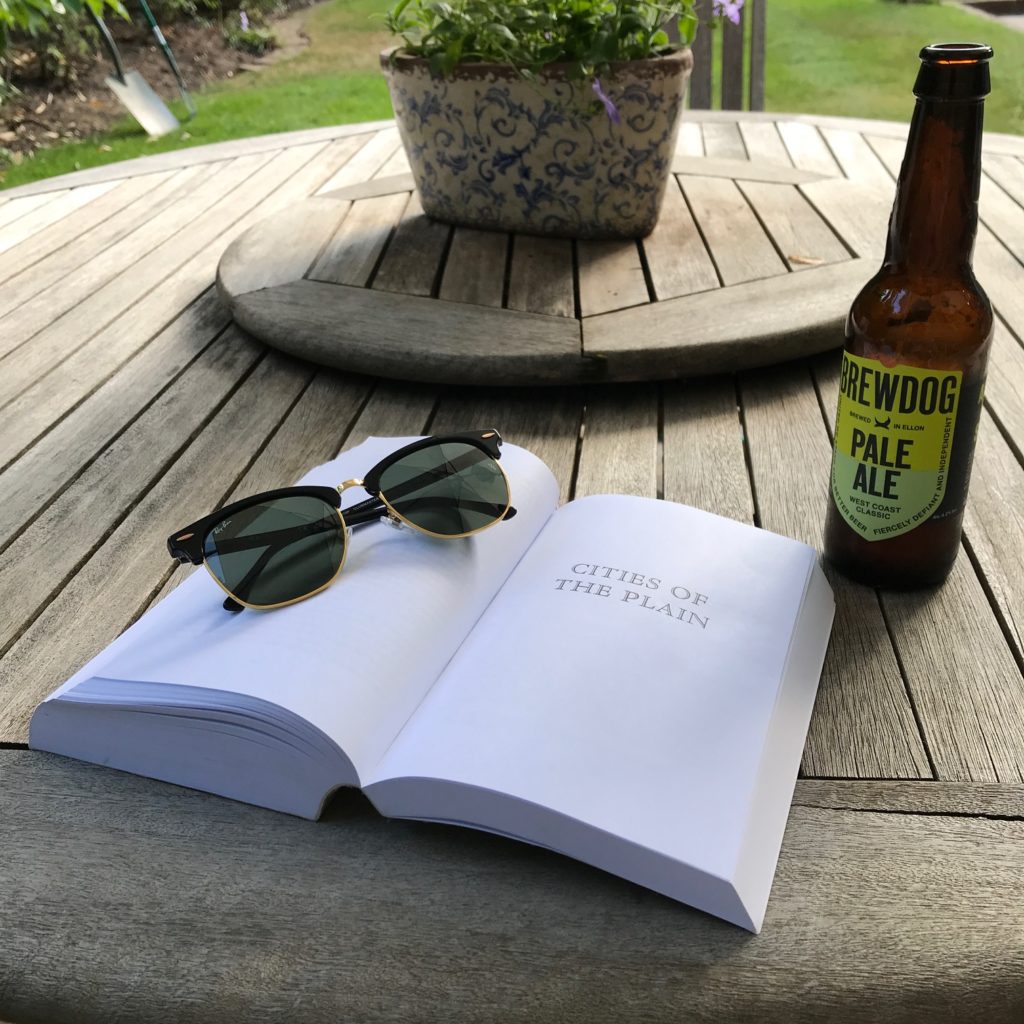

The final book in the trio of novels that makes up Cormac McCarthy’s border trilogy. What a journey. (Here’s reviews of book #1 and #2 in case you’re interested). What can I say about the greatest living author that I haven’t already said?
Well for one, he makes every single word count, to the point that the book reads like a short story but is the length of a novel. As always, the endlessly inventive ways he describes nature is staggering. I can’t believe he can come up with so many different descriptions of the stars at night or the colours of the sunset. His imagination is sprawling.
In general, the Border Trilogy has a timelessness to it. I can’t exactly pin down the years the novels are meant to occur in. They could be anywhere from the late 1800s up to the mid-late 1900s. I think this is due to the novels’ being about characters, and their exploration of wilderness and each other in a forgotten part of the world. This means the only gauge of time is the occasional reference to some kind of machinery or tool, but even this doesn’t narrow things down much.
As with the other two books in the series, there is a slow start, where the plot mills around and I wasn’t too sure what direction the story was going in. But again, as with the first 2 novels, it really kicks off at the half way point and hurtles with break neck speed to its conclusion.
My small negatives of this book is that the main characters are often not distinguishable by any single feature and are generally quite similar. This may be due to McCarthy giving them minimal physical description and his lack of attribution during character dialogue. It’s a small qualm as lots of the characters we meet along the journey are very fleshed out and intriguing, but it is noticeable.
There is a long but fascinating epilogue that brings together McCarthy’s musings on philosophy, dreams, life, and death. These themes that are woven throughout the Border Trilogy, and indeed his other work, have been discussed by McCarthy in an academic essay called The Kekulé Problem, which I highly recommend reading if these topics interest you. In the essay, McCarthy discusses the ancient human unconscious mind and the disjointed and dissociated development it shares with modern language. Complex stuff, but provocative and intriguing none the less.
Additionally, I recently came across one of McCarthy’s first written short stories. “A Drowning Incident” was published when McCarthy was but 27 years old, and in 4 short pages, he established the themes and stunning prose we see time and again in his later works. It’s daunting and brilliant, and if you’ve never read McCarthy acts as the perfect introduction into the mind of this literary genius.
I’m hardly selling him as a writer am I?
Last Words
Thank you for checking out my July book review, please head over to my book section of the Walk Wild website to see what else I’ve been reading.
Please follow my new Instagram account Write Wild to stay in the loop with all my book and writing updates.
Happy reading 📚



